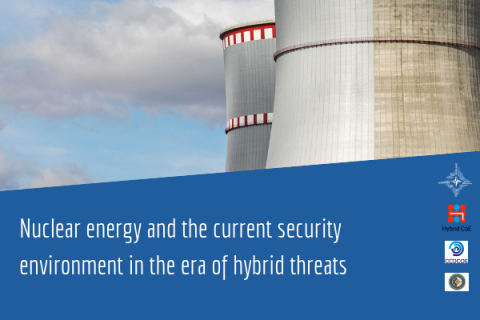This is one of the Case Studies from the report "Hybrid Threats. A Strategic Communications Perspective".
You can access the full report here.
Executive Summary
The Senkaku Islands are a group of five uninhabited islands and three islets located in the East China Sea. They are under the administrative control of Japan, but are also claimed by China and Taiwan. The Senkaku Islands have both economic and military value, as there are rich fishing grounds in the exclusive economic zone (EEZ) surrounding the Senkaku Islands, as well as significant oil and gas deposits. The islands are also of great geostrategic value, facilitating control over the East China Sea.
In September 2010, a Chinese fishing trawler refused Japanese Coast Guard (JCG) requests to leave Senkaku territorial waters. After a stand-off, the trawler rammed two JCG vessels and after a 40 minute chase, the JCG boarded the Chinese trawler and arrested the 15-man crew and captain. The captain was later tried under Japanese domestic law. China initiated a range of hostile measures in response to the incident. In particular, China drastically curbed its rare earth elements (REE) exports to Japan, whose high-tech oriented economy is very dependent on REEs. As of 2009, Chinese supplies comprised 80 per cent of Japan’s demand for REEs. Short-term, China wanted to force Japan to immediately release the detained trawler captain; long-term, China wanted to demonstrate its ability to use a potent economic instrument which could be used as deterrent and as coercive measure or for punishment.
Key Points
- This was an example of a small event which escalated into an international incident. While it is highly unlikely that the Chinese fishing trawler was acting under direct command of the PRC, the incident was still readily exploited for strategic gain.
- Adversarial measures relied heavily on ambiguity. The two key aspects included the informal nature of the embargo on REE and the involvement of a non-state actor (civilian fishing vessel) as catalyst for the conflict.
- In response to such flexible and adaptive StratCom approaches, nations should focus on the consistency and coherence of government messaging, rather than trying to decipher deliberately ambiguous statements and actions.
- If one interprets the 2010 Senkaku crisis from the perspective of 2018, it very much resembles an initial engagement used to test the opponent’s defences and potential international reaction. The political tensions between China and Japan resurged in 2012 and remain elevated, with the islands as one focal point of the confrontation.






